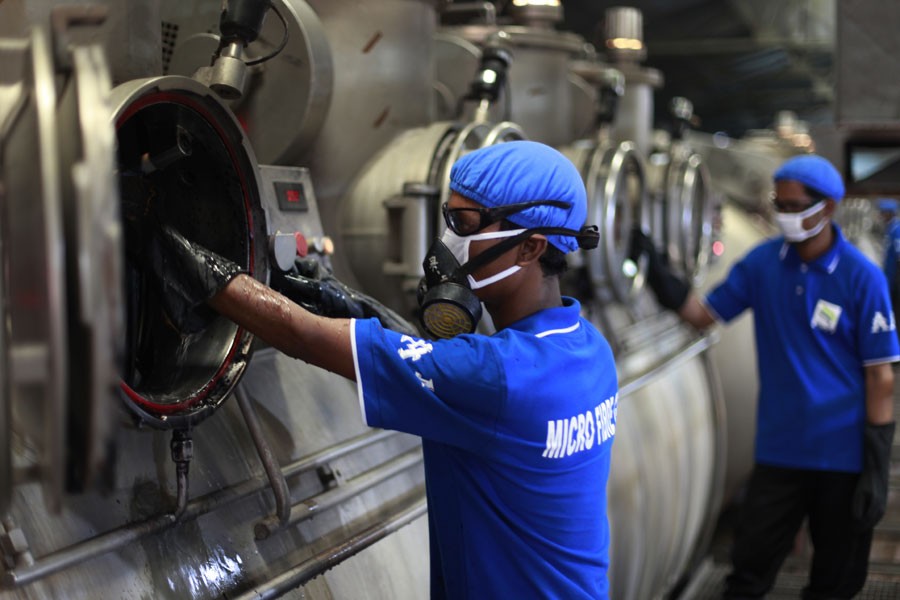The introduction of a new checklist for factory inspection has caused some technical complexities like preparing status reports on labour rights and safety issues in the industries, especially garment sector, officials said.
As a result, the release of data by state-run Department of Inspection for Factories and Establishment (DIFE) remained suspended since the checklist was introduced on January 01 last year, they added.
The DIFE prepares monthly reports on its regular factory inspection, but no such report had been completed in 2017.
The 2016 inspection report, however, revealed a wide range of irregularities including non-issuance of appointment letter, identity card, non-payment of wage and maternity leave, and other rightful benefits to workers in the readymade garment sector.
When asked, DIFE inspector general Shamsuzzaman Bhuiyan said the DIFE in cooperation with the International Labour Organisation (ILO) early last year developed a new and more comprehensive checklist that includes building and structural safety as well as occupational safety and health, employment conditions and service issues.
Developed in line with the Bangladesh Labour Act and the Labour Rules, it is a translation of the regulatory provisions into a practical tool, he said. For the new checklist, he added, it was taking some time to prepare the reports.
There were also some inconsistencies in the findings, which were being re-examined, he said, expressing the hope that the 2017 inspection reports would be ready shortly.
After the Rana Plaza collapse in 2013, the DIFE adopted a check list applicable to garment factories, having a building and structural safety focus, excluding all other sectors, people involved with the process said.
The new checklist is expected to help DIFE to do its job better by obtaining information in a more systematic and comprehensive manner, they said, adding that the purpose was also to help the DIFE leadership make informed management decisions and carry out follow-up actions.
There were no records of improvements, followed by repeated inspections, they said.
In 2016, the DIFE inspectors visited a total of 2,124 readymade garment factories -- including some 1,409 affiliated with the Bangladesh Garment Manufacturers and Exporters Association (BGMEA) and 356 with the Bangladesh Knitwear Manufacturers and Exporters Association (BKMEA).
The rest 359 are not members of any of the two trade bodies.
The extent of irregularities varies in factories registered with the BGMEA and BKMEA while those were much higher in the non-member factories, according to the report.
Some 21 per cent and 26 per cent of the factories inspected didn't provide appointment letters and identity cards respectively to their workers while the rates of non-payment of wages, overtime and non-compliance with government-announced wage structure ranged between 11 per cent and 14 per cent.
According to the report, some 55 per cent of the apparel factories are engaged in operation without taking prior permission from the authorities concerned for working hours. Only 13 per cent of the factories not associated with the BGMEA and BKMEA met the requirement, according to the report.
About 69 per cent and 67 per cent of the BGMEA and BKMEA members gave maternity leave and allowance while the percentage is only 37 per cent in the non-member units, it showed.


